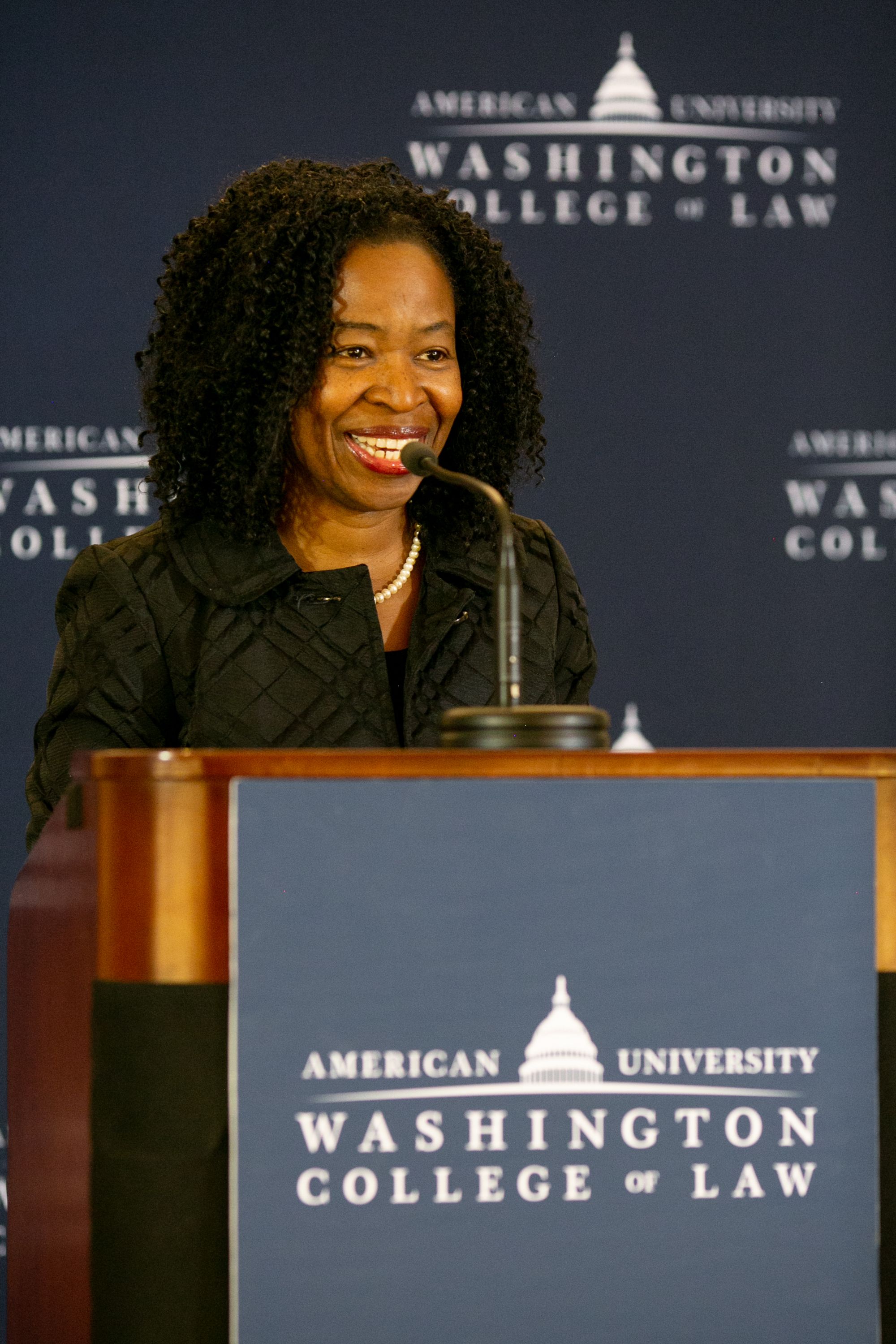
Harvard Professor Ruth L. Okediji Calls for New Public Interest Copyright System
On October 10, Professor Ruth L. Okediji Delivered the 8th Annual Peter A. Jaszi Distinguished Lecture on Intellectual Property. Her lecture addressed The Unfinished Business of Copyright Limitations and Exceptions.
Professor Okediji called for a new paradigm of thinking about the relationship between copyright and the public interest. “The excesses of the copyright system cannot be remedied by limitations and exceptions alone,” she exclaimed.
The lecture warned that it is important to not make limitations and exceptions like copyright – following a one size fits all pattern. There is a tendency for limitations and exceptions to be reactive. Every exception responds to the creation of new rights and is primarily justified in economic incentive terms. The incentive rationale places a limit on public rights in our legal imagination. In the process, she argues, we have given up other avenues to cabin copyright excess that serve a broader set of values. “We don’t have a copyright story to tell for the diverse modes of creativity that do not have markets,” she explained.
A video of her lecture is available here.
“The limitation of copyright analysis to the incentive effect is truly blasphemous. . . . The role of libraries, museums and archives should not be on the same side of the ledger as economic incentives. Balance is not the goal. We need a copyright system that is not just for markets.”
Professor Ruth L. Okediji
Summary by Cameron Rocha
Editor-in-Chief
WCL Intellectual Property Brief
On October 10, 2019, the 8th Annual Peter A. Jaszi Distinguished Lecture in Intellectual Property was held at American University Washington College of Law. Professor Ruth L. Okediji, Professor at Harvard Law School and Co-Director of the Berkman Klein Center for Internet and Society, spoke about the role of copyright limitations and exceptions in the multinational copyright ecosystem.
Professor Okediji began her academic writing career with a short essay on the question “Is Creativity Dying in the Third World?” She argued that international copyright law is structured as if no one outside the global north is capable of producing work with international creative worth. The copyright system, she surmised, is premised solely on the idea that protection is needed to supply incentives to creators.
The goals of the copyright system are different now than they were in the era of the Statute of Anne. The Statute of Anne, passed by British Parliament in 1710, was the first statute to provide government regulated copyright. Professor Okediji explains that the Statute of Anne was not designed to accommodate inequalities. In fact, the Statue of Anne required mandatory deposits even though women were not allowed to be librarians during that time. Nor was the Statute of Anne designed to accommodate the blind or illiterate. In the words of 1691 puritan writer Richard Baxter, the “rabble that cannot read.” The copyright system was designed only for the intelligentsia class that was able to create works and profit from them.
Copyright law today, Professor Okediji explains, maintains a bar on access to public goods. This bar is illustrated by the ban on copying for students and creators and the need to copy for studying and creating. Professor Okediji believes this disconnect is due to a lack of participation in copyright law discourse by certain communities which instead must rely on others to represent their goals and needs.
On the role of limitations and exceptions in addressing inequalities, Professor Okediji expounds that the excesses of the copyright system cannot be address only through limitations and exceptions. Limitations and exceptions to copyright allow copyrighted works to be used without a license from the copyright owner. Professor Okediji points out that each limitation and exception exist in relation to a copyright protection.
Embedded in the concept of limitations and exceptions is the notion that there is an ideal user and an ideal author. Communities, however, don’t always fit into these notions. Ultimately copyright policy, including implementation of limitations and exceptions, flourishes in response to markets and not in response to public need. Professor Okediji imagines a world where markets are not the primary reason for copyright policy.
Professor Okediji uses the example of libraries. The idea that libraries need an exception for the dissemination of copyrighted works presumes that libraries and creators are in competition. In reality, libraries are not a threat to cultural production. Yet, copyright law has exceptions for libraries to exist. The need for exceptions distracts from the primary goal of libraries as a repository of public knowledge. Professor Okediji reminds us that a library’s role is not in the market but ensuring people can read and write.
Professor Okediji closes on the point that limitations and exception need to accommodate communities and not coalitions of industry. There needs to be an architectural change in policy to ensure certain communities have access to the benefits of copyright law. Copyright law, in its current form, is only accessible to certain communities. In other communities, cultural production is ripe for limitations and exceptions but not thought of when designing copyright policy.